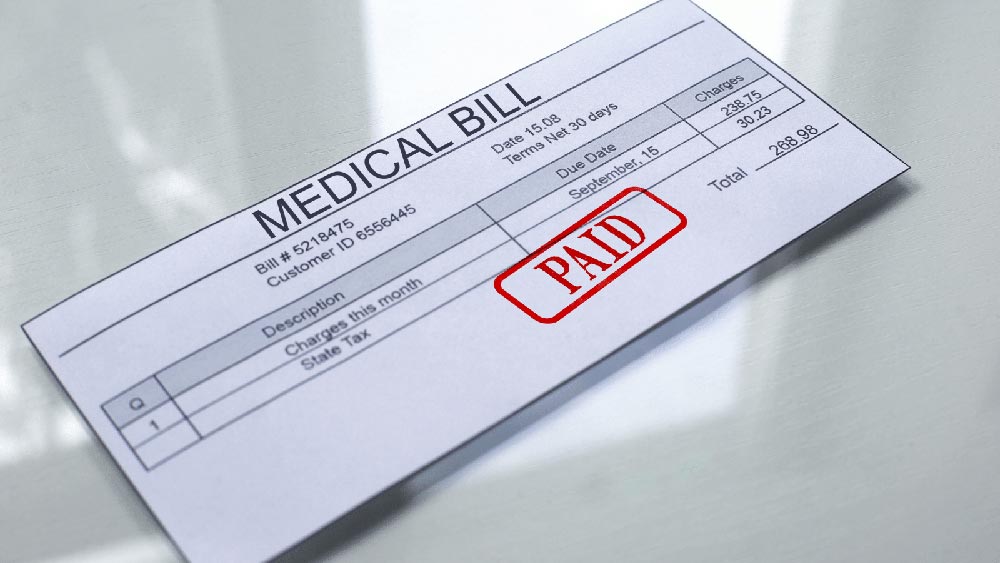If you suffer from a personal injury, you may have extensive medical bills, lost wages, and more as a result of someone’s negligent act. Colorado personal injury law provides ways you can recover those losses.
According to the U.S. District Courts Judicial Business 2019 report, there were 74,034 personal injury cases filed in the United States. Negotiating a fair settlement for a personal injury requires extensive time, perseverance, and legal knowledge.
You need to know your legal rights in Colorado if you suffer a personal injury.

What Are Personal Injuries
There are numerous types of injuries that fall under the classification of personal injury. If you undergo medical treatment as a result of any of the following, you should contact a Colorado personal injury law firm regarding your rights to compensation.
Motor Vehicle Accidents
- Automobile Accident—Maintain copies of all accidental and medical records and contact a personal injury law firm.
- Bus Accident—This includes public transportation, private bus companies, and school buses
- Trucking Accident—Lawsuits may involve both the driver and the trucking company
- Motorcycle Accident—Lawsuits may include several counts including negligence and wrongful death
- Bicycle or Pedestrian Accident—Victims generally have to seek medical coverage from their personal insurance and the auto owner’s insurance
Other Types of Accidents
- Construction Accident—Lack of training, recklessness, poor maintenance of machinery, and more result in personal injuries
- Pharmaceutical—wrong medication being dispensed and failing to provide warnings about the risk of drugs resulting in injury
- Product Liability—This covers a wide range of products and injuries including defective toys, faulty seatbelts, airbags that do not deploy, and more
- Premises Liability—Injury on the property of another as a result of poor maintenance, lack of security, etc.
- Workers Compensation—Injuries that happen while at your place of work
- Other—Aviation accidents, birth injuries, ski accidents, nursing home abuse, and more
The types of injuries that may result in personal injury are limitless. There are statutes of limitations so be sure to avoid missing court deadlines and contact a personal injury attorney as soon as you can. You should be able to set up a free consultation to discuss your case.
Colorado Personal Injury Law Statutes of Limitations
The Colorado Statute of Limitations, C.R.S. 13-80-102 is the law that determines how long you have after an injury to file a lawsuit. Each type of case has different limitations. With personal injury and negligence, the time frame is two years.
The law specifically states that the statute does not cover actions that are the result of motor vehicle accidents.
Wrongful Death
If the personal injuries incurred by a loved one result in wrongful death the Statute of Limitations is set by C.R.S. 13-80-102. That Statute states that regardless of the theory on which the lawsuit is filed, it must begin within two years.
The date on which a cause of action for wrongful death accrues is on the date of death pursuant to C.R.S. 13-80-108.
Medical Malpractice
If you suffer a personal injury due to medical malpractice, the date on which the clock begins to run varies. While the statute is two years, the clock does not begin until the date on which the party suffering the injury discovers, or should have discovered, the injury.
The statute specifies that the actions from any health care facility or professional shall begin within two years after the date accrues pursuant to CRS 13-80-108(1) but shall not begin more than three years after the incident pursuant to C.R.S. 13080-102.5.
What are the statute of limitations for injuries received from a car accident?
If your loved one dies as a result of an accident and you plan to bring a wrongful death lawsuit, that statute is two years from the date of death.
If the death is the result of an accident and the other driver fled the scene, the statute extends the time period for filing to four years.
Ski Resort Injuries
In Colorado there is a unique type of injury that comes up quite often, ski accidents injuries.

Those who enjoy spending time on the slopes may incur injuries as a result. The Colorado Ski Safety Act of 1979, C.R.S. 33-44-102 establishes safety measures for ski resorts. It provides for the legal responsibilities of the resort owners, agents, and employees.
The law establishes negligence as a liability of ski area operators if they fail to comply with the regulations of this act resulting in personal injury. It also sets limitations on that liability at one million dollars.
Comparative Fault
Colorado has a comparative fault rule, which means that if you suffer injuries but are somewhat at fault for your injury, an adjustment will be made to the compensation you receive.
For example, if you are found to be 20% at fault for your injury, then you will receive 80% of what the award would be without fault. As long as you are less than 50% at fault, you will still receive some compensation. If your fault is 50% or higher then you are unable to recover damages.
Damage Caps
A damage cap limits the amount of money you can receive in a lawsuit. Colorado has a $250,000 cap on non-economic damages in a personal injury claim.
This may be extended up to $500,000 when “clear and convincing evidence” shows that there is justification for an increase in the award. C.R.S. 13-21-102.5 also allows for adjustments due to inflation in the amount of the award.
Your Lawsuit Reward and Income Tax
The money you receive in a personal injury is not usually subject to any state or federal income tax. This is because that money’s purpose is to cover the expenses you suffered as a result of your injuries. If you receive any additional award beyond reimbursement of your expenses those may be subject to income tax.
Punitive damages are taxable under the “other income,” line 21 on Form 1040, Schedule 1 pursuant to Internal Revenue Service Publication 4343 (Rev. 12-2016).
Benefits of a Personal Injury Law Firm in Colorado
When you hire a personal injury law firm you benefit from their legal knowledge and comfort in negotiating settlements. They will know the laws that pertain to your case and the Colorado Rules of Civil Procedure. Those rules establish the procedures that you must follow in the handling of a lawsuit.
Do not make or sign any settlement agreements until you have an attorney review them. Insurance companies are out to make money, not pay benefits, and they may entice or threaten you to agree to much less than your entitlement.
Start Your Claim Today
Personal injury and court laws are extensive and confusing. You need to concentrate on your recovery. Be sure to contact one of the best Colorado personal injury law firms that has the experience and skill to get you compensated for your injuries.
Contact the firm of Elkus and Sisson, P.C. They will schedule a free consultation to review your case and advise you of your rights. Call (303) 567-7981 today.

